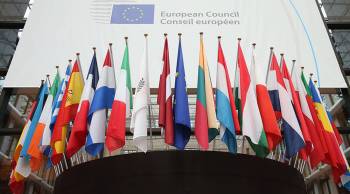U.S. will need help with Iran sanctions
TEXT OF STORY
KAI RYSSDAL: Secretary of State Condoleezza Rice has spent a good part of the past year trying to work on diplomatic overtures to Iran. Treasury Secretary Henry Paulson has taken a differnt tack, with tough unilateral financial sanctions.
Today, the stick beat out the carrot, as Paulson and Rice jointly announced new economic pressures on Tehran — sanctions on Iranian banks, companies and specific military units, including the elite Revolutionary Guard.
But our Washington bureau chief John Dimsdale reports the White House is going to need some help if this is going to work.
John Dimsdale: The Treasury and State departments today accused three of Iran’s state-owned banks of promoting nuclear proliferation and laundering money for terrorists The U.S. will prohibit any financial transactions with any foreign company that does business with those banks, or with Iran’s military industrial complex.
Stuart Levey, the Treasury Undersecretary for Terrorism and Financial Intelligence, expects global business will now steer clear of Iran.
Stuart Levey: Financial institutions around the world, they don’t want to do business with terrorists. When we put this kind of information in the public domain, we have found that the private sector will often stop doing business with these entities.
If other countries go along, analysts say these sanctions could hurt Iran’s economy. But Suzanne Maloney at the Saban Center for Middle East Policy isn’t so sure foreigners will cooperate.
Suzanne Maloney: I think the international community views this step as moving a little further and faster than many of our allies would like to see. Clearly the Russians and China are disinclined to move in drastic ways to alter relationships with Iranians.
And Anthony Cordesman at the Center for Strategic and International Studies says the administration has to overcome a credibility problem.
Anthony Cordesman: Throughout the region where the United States is seeking cooperation, the United States is often seen as anti-Islamic and anti-Arab in the way it’s approached the problems of counterterrorism.
State Department officials today denied the new sanctions were a prelude to armed conflict with Iran.
In Washington, I’m John Dimsdale for Marketplace.
There’s a lot happening in the world. Through it all, Marketplace is here for you.
You rely on Marketplace to break down the world’s events and tell you how it affects you in a fact-based, approachable way. We rely on your financial support to keep making that possible.
Your donation today powers the independent journalism that you rely on. For just $5/month, you can help sustain Marketplace so we can keep reporting on the things that matter to you.

















